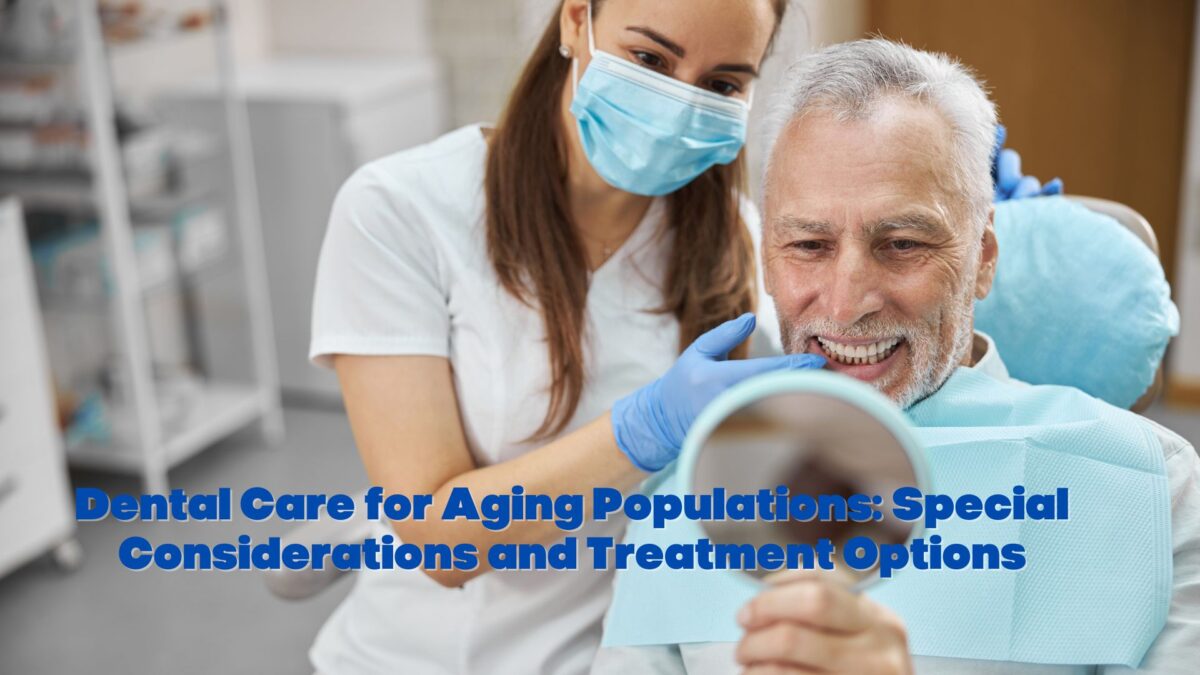
As the global population ages, the demand for specialized dental care for older adults is on the rise. With advancements in healthcare and increased life expectancy, maintaining oral health well into the senior years is becoming more critical than ever. For older adults, dental care isn’t just about aesthetics but also plays a significant role in overall health, quality of life, and well-being. This article explores the unique considerations, challenges, and treatment options for aging populations, along with strategies to provide effective and compassionate care.
Aging brings a series of changes in the body, and the mouth is no exception. Understanding these physiological changes is crucial for developing an effective dental care plan for older adults. Some of the most common age-related changes include:
Older adults are prone to several oral health issues that require tailored treatment approaches:
Older adults are more likely to have complex medical histories and take multiple medications. This makes it vital for dental professionals to take comprehensive health histories before starting treatment. Medications for conditions such as hypertension, osteoporosis, and depression can have side effects that impact oral health, like dry mouth or altered taste sensation.
Cognitive impairments, such as Alzheimer’s or dementia, can complicate dental care, making regular check-ups and daily oral hygiene challenging. Patients with limited dexterity due to arthritis, Parkinson’s disease, or stroke may struggle to brush or floss their teeth effectively.
Poor oral health can affect nutrition, as it becomes more difficult for seniors to chew and enjoy food. This can lead to malnutrition, which in turn affects oral health, creating a vicious cycle. Dentists must assess the nutritional status of their patients and recommend suitable solutions, such as adjusting dentures, offering dietary advice, or providing dental restorations to improve chewing function.
The psychological impact of aging, including self-image issues related to tooth loss or denture use, can also affect oral health. Seniors may feel self-conscious about their appearance or hesitant to seek dental care due to financial concerns or fear of the dentist. Compassionate care and open communication are essential in building trust and alleviating anxiety.
Dental care for older adults requires a range of treatment options tailored to their specific needs. From preventive care to restorative solutions, modern dentistry offers a variety of approaches to help aging patients maintain or restore oral health.
Prevention is key in managing oral health for older adults. Regular dental check-ups, professional cleanings, and screenings for oral cancer can help prevent serious issues from developing. Additional preventive strategies include:
For patients with tooth loss or damage, restorative treatments can restore function, aesthetics, and confidence.
For those suffering from gum disease, periodontal therapy is critical. Deep cleanings (scaling and root planing) can help control gum disease and prevent further damage. In advanced cases, surgical intervention may be necessary to restore gum and bone health.
For patients who may not be candidates for extensive surgery or restorative work, minimally invasive treatments are available to address specific concerns without extensive recovery time.
For older adults who are no longer able to care for their own oral health, caregivers play a crucial role in maintaining dental hygiene. Caregivers should be trained to assist with brushing and flossing, understand the signs of dental problems, and ensure that the patient attends regular dental appointments.
Dental professionals can provide guidance to caregivers on how to handle daily oral hygiene, including the use of adaptive tools like specialized toothbrushes or flossing aids. Encouraging caregivers to stay vigilant about potential problems, such as mouth sores, loose teeth, or ill-fitting dentures, can help prevent more serious issues from developing.
Oral health is closely linked to overall health, and poor oral hygiene can contribute to systemic conditions such as heart disease, diabetes, and respiratory infections. For older adults, maintaining oral health is particularly important in managing chronic conditions. Research shows that gum disease can increase the risk of heart disease and stroke, while poor oral hygiene can exacerbate diabetes and contribute to pneumonia in those with compromised immune systems.
By promoting regular dental care and addressing oral health issues early, dental professionals can help improve the overall health and quality of life of aging patients.
Dental care for aging populations requires a comprehensive, patient-centered approach that takes into account the unique challenges older adults face. From managing medical conditions and medications to addressing cognitive and physical limitations, dentists must adapt their treatments to provide safe, effective, and compassionate care. By focusing on prevention, offering tailored treatment options, and working closely with caregivers, dental professionals can help older adults maintain their oral health, confidence, and well-being well into their senior years.
As our population continues to age, it is essential for dental practices to stay informed about the latest advancements in geriatric dentistry and to continually adapt their care models to meet the evolving needs of their older patients. With the right strategies in place, aging adults can enjoy a healthy.
#DentalCare #SeniorHealth #OralHealth #AgingWell #GeriatricDentistry #DentalImplants #HealthyAging #ElderCare #OralHygiene #DentureCare
